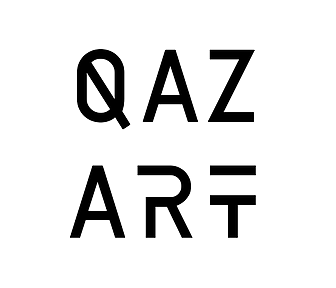Art collective
Kyzyl Tractor
Art collective Kyzyl Tractor was established in the early 1990s by Vitaliy Simakov, a college professor and member of the spatial-structural composition school. Kyzyl Tractor has successfully developed its characteristic line of research on the mutual influence of traditional values of culture and civilization. The art group's practices are characterized as distinctive, original, authentic, and what is more important influential not only in the local context but in wider global processes that the art history goes through in modern society.
The name and members have not remained consistent throughout the collective’s existence but have and will continue to change. The first known title of the collective was Shymkent Trans Avant-Garde and then SAA, a verbal expression short for Salem, meaning hello or peace be upon you. Since Kyzyl Tractor’s first exhibition, Moldakul Narymbetov was the group’s leader until his passing in February 2012. Current members include the artists Smail Bayaliyev, Said Atabekov, Vitaliy Simakov, and Arystanbek Shalbayev, who have all been the main driving force of the art group in recent years.
Constant nomadic movement, a common narrative of the 1990s, is present in most of the collective’s performances. Sacred materials such as wood and wool, felt, and other textiles found in the steppes of Kazakhstan are generally featured in Kyzyl Tractor’s performances, along with instruments like the Shan-Kobyz, dombra, and drums. The principles of the spatial-structural composition school and dervish, nomadic, and Tengri heritage have been visible in their first ten years of performative practice throughout the 1990s. Growing out of the group’s collective work, each member has simultaneously developed their own artistic practices over the years.
Written by Leeza Ahmady as a preamble for the curatorial statement of Thinking Collections: Telling Tales.
The name and members have not remained consistent throughout the collective’s existence but have and will continue to change. The first known title of the collective was Shymkent Trans Avant-Garde and then SAA, a verbal expression short for Salem, meaning hello or peace be upon you. Since Kyzyl Tractor’s first exhibition, Moldakul Narymbetov was the group’s leader until his passing in February 2012. Current members include the artists Smail Bayaliyev, Said Atabekov, Vitaliy Simakov, and Arystanbek Shalbayev, who have all been the main driving force of the art group in recent years.
Constant nomadic movement, a common narrative of the 1990s, is present in most of the collective’s performances. Sacred materials such as wood and wool, felt, and other textiles found in the steppes of Kazakhstan are generally featured in Kyzyl Tractor’s performances, along with instruments like the Shan-Kobyz, dombra, and drums. The principles of the spatial-structural composition school and dervish, nomadic, and Tengri heritage have been visible in their first ten years of performative practice throughout the 1990s. Growing out of the group’s collective work, each member has simultaneously developed their own artistic practices over the years.
Written by Leeza Ahmady as a preamble for the curatorial statement of Thinking Collections: Telling Tales.
Download CV

